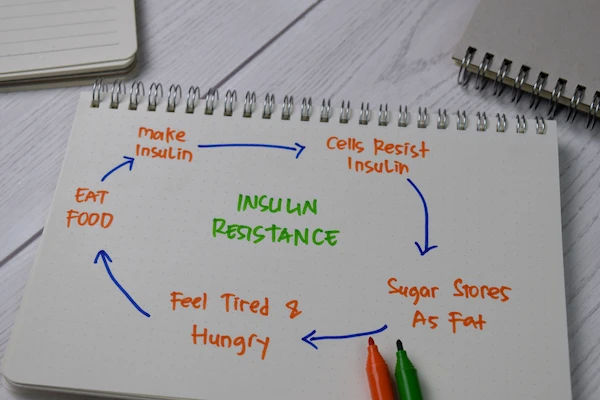- female
- 50 Years
- 10/05/2022
Can prediabetes cause weight loss?
Answered by 1 Apollo Doctors
Yes, although it need not be seen in every person.
Dr. Dhankecha Suggests...
Consult a Endocrinologist
Answered 04/07/2025
0
0


Ask Apollo
AI powered Health Chatbot
-
Prediabetes and Weight Loss:
- Prediabetes typically does not cause weight loss. It is often linked with being overweight.
-
Unexplained Weight Loss:
- If a 50-year-old woman with prediabetes experiences unexplained weight loss, it may indicate rising blood sugar levels towards diabetes.
-
When to Seek Medical Advice:
- Consult a healthcare provider if there is significant or unexplained weight loss, increased thirst, frequent urination, or fatigue.
-
Recommendation:
- Monitor weight changes and seek medical guidance to ensure early detection and management of potential diabetes or other health issues.
Answered 20/08/2025
0
0
More Endocrinology Health Queries
View allI'm trying to figure out the difference between Glimestar M2 and Gluconorm tablets. Is it just that they're made by different companies, or do they actually have different formulas or ingredients? Could you explain it to me, please?
In both tablet there is difference between formula
Answered by 1 Apollo Doctors
What is a good sugar number for diabetics?
Goal HBA1C is 6 - 7 % for Diabetics.
Answered by 1 Apollo Doctors
How does someone with diabetes use insulin?
Insulin can be injected into the fat just below your skin with a syringe and needle or a penlike device that hold insulin with a needle attached.
Answered by 1 Apollo Doctors
Disclaimer: Answers on Apollo 247 are not intended to replace your doctor advice. Always seek help of a professional doctor in case of an medical emergency or ailment.

 How does prediabetes affect blood sugar levels?
How does prediabetes affect blood sugar levels? 

